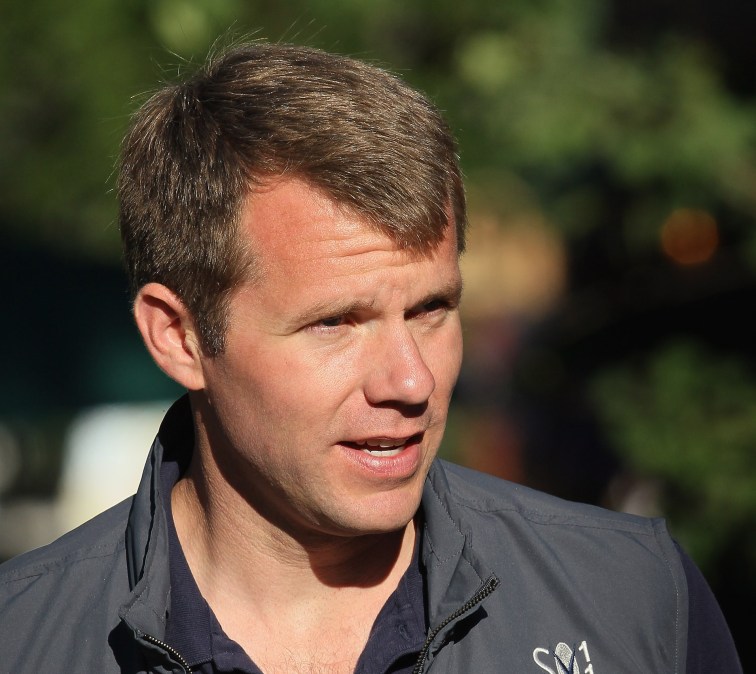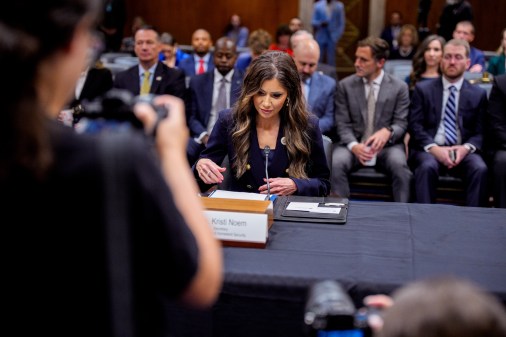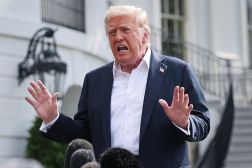State Department needs more cyber policy muscle, says cyberspace ambassador nominee

The nominee to be the first U.S. ambassador at large for cyberspace and digital policy said one of his top priorities would be to “assert the State Department’s rightful place in the interagency process on topics of cybersecurity and digital policy.”
Nate Fick, a former Marine leader and cybersecurity CEO, spend much of his Senate Foreign Relations Committee confirmation hearing on Wednesday making the case for a more assertive State Department on a range of cyber issues.
“We have not fully extended deterrence into the cyber domain,” he said. “I believe that American power has been a force for stability in the world since the end of World War II and our adversaries seek to do mischief or harm us using digital means because they know what the consequences are in the physical world.”
His comments follow recent negotiations between State and the Defense Department (DOD) over negotiated cyber authorities in which both sides have been maneuvering for more control over cyber operations. The Biden administration recently gave State the ability to have input on certain types of military cyber operations, giving the department greater influence over foreign cyber campaigns that could have international ramifications.
Sen. Angus King, an Independent from Maine, said Tuesday that Fick is “superbly qualified” to lead State’s cyber efforts, a role which he said will require a close working relationship with DOD.
“Cyber Command and NSA obviously are the first line of defense in terms of active cyber conflict, but certainly there would be an important relationship on an ongoing basis,” King said. “CyberComm and NSA can inform this new bureau about where the threats are, where the allies that they’ve established are, what relationships we’ve had with other countries cyber defense establishment.”
State should also play a larger role in pursuing and managing partnerships with other countries to “finance the deployment of secure infrastructure,” Fick said in an apparent reference to Chinese companies such as Huawei.
“I do believe that the State Department as the nation’s lead foreign policy agency should lead on the partnership aspects of technology collaboration,” Fick said. “I appreciate also that this is a cross-cutting issue inherently: It has defense elements, it has intelligence elements, it has economic elements … . The creation of this [ambassador] role helps to elevate and integrate those functions at the State Department.”
“Our strategic competition with China along digital lines is probably the defining strategic question of my generation. We have a competitor out there with a very different vision of what our global technology future should look like.”
nate fick, nominee for state department ambassador at large for cybersecurity and digital policy
Fick, who appeared at the hearing with his wife and two daughters, spoke passionately about the role technology will play in ensuring democracy prevails over authoritarianism.
“I believe our strategic competition with China along digital lines is probably the defining strategic question of my generation,” Fick said. “We have a competitor out there with a very different vision of what our global technology future should look like. And I look behind me here at my children and think that this is fundamental to shaping the world that they will grow up in.”
The U.S. will need many partners around the globe to beat back the Chinese threat, he said. If he is confirmed, Fick said he will consider a partnership with the European Commission’s Trade and Technology Council to supply secure technology infrastructure to other countries and will work with India, Japan and Australia to promote Open RAN deployments in the Indo-Pacific region.
“I believe very strongly that global telecom security is essential,” Fick said. “The US cannot do it alone. By its very nature, this is a global network of hardware and infrastructure.”
The hearing also focused on how State can better ensure digital fluency among diplomats and other employees. Enhanced digital skills will be needed across the department to ensure the U.S. is well-positioned to fight what Fick called “a global contest for a democratic future … and against an authoritarian future in which technology is harnessed to repress free expression and destabilize open democratic societies.”
Establishing a department-wide culture where fluency in digital technology is prized by foreign service officers is another one of Fick’s goals.
“I can imagine a future where any candidate to be a chief of mission is expected to have an understanding of these issues because they’re a substrate that cut across every aspect of our foreign policy,” he said.
Sen. Rob. Portman, an Iowa Republican, noted he is worried about government cybersecurity agencies with overlapping responsibilities and authorities.
“CISA [the Cybersecurity and Infrastructure Security Agency] has a strong presence here, the White House has a strong presence here, the Defense Department has a strong presence here,” Fick said, referring to the other agencies’ cybersecurity portfolios. “The State Department has not, and I believe that diplomacy should be our tool of first resort.”
Updated 8/4/22: to include Sen. Angus King’s comments.






